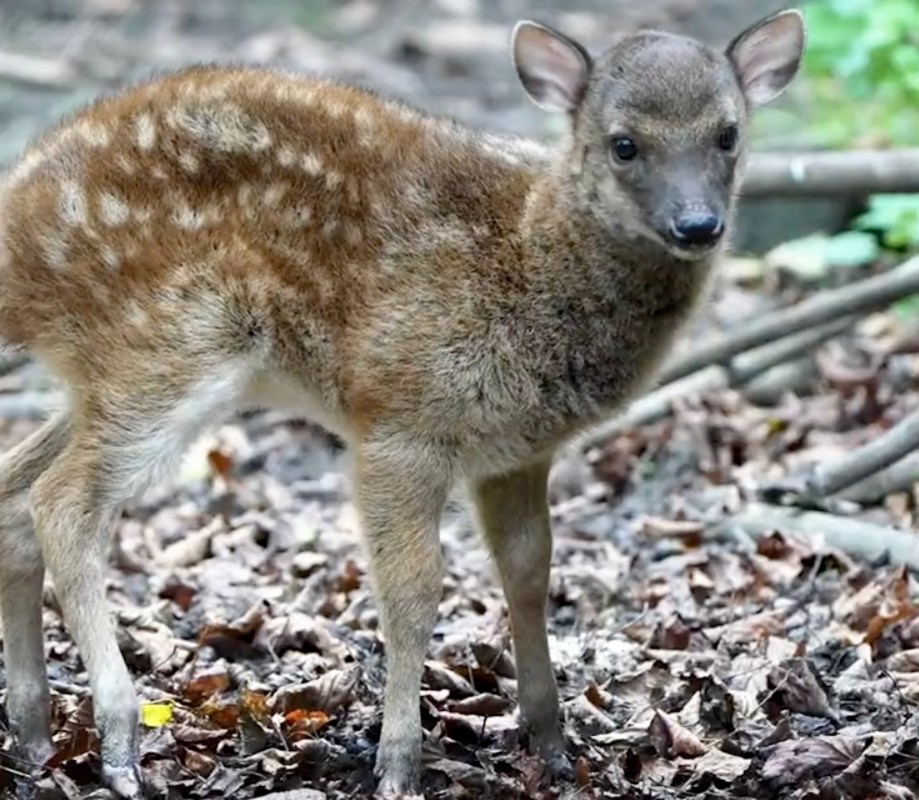A rare species of deer thought to be on the brink of extinction has been born at Chester Zoo in England.
The tiny Philippine spotted deer named Hercules arrived in October, standing just under a foot tall and weighing just 4.5 pounds.
TINY NEW ARRIVAL!🦌
— Chester Zoo (@chesterzoo) October 19, 2023
This baby Philippine spotted deer is one of the rarest animals you'll EVER see!
Born standing at just 30cm tall – this little guy has been named Hercules⭐
ONLY 300 are estimated to remain in the wild, so every birth is incredibly important to the future… pic.twitter.com/yl3jFktRyH
Chester Zoo noted that there are an estimated 300 Philippine spotted deer left in the wild, with the International Union for the Conservation of Nature warning they are at high risk of dying out completely.
"Every birth is therefore absolutely critical in boosting the safety-net population in conservation zoos across Europe," Chester Zoo team manager Emma Evison said.
According to regional field programme manager Stuart Young, hunting and deforestation have led a once thriving population to decline. The deer had been prominent in the Visayan Islands, but they are now only found on the islands of Panay and Negros.
Chester Zoo has funded and built breeding centers on these islands across two decades, and the impact so far has been telling.
"A result of these efforts saw 32 Philippine spotted deer safely reintroduced into a protected nature reserve in 2020," Young said. "Since then a number of births in the wild has almost doubled the population and we're very happy to report that they are thriving."
For more than 20 years we have funded, and helped to build, vital conservation breeding centres in the Philippines to stop precious species from becoming extinct 🌏
— Chester Zoo (@chesterzoo) October 19, 2023
A result of these efforts saw 32 Philippine spotted deer safely reintroduced into a protected nature reserve in… pic.twitter.com/QTLtqmAPwd
According to the World Wildlife Foundation, more than 75% of the world's documented land-based species live in forest habitats. When trees are razed for the sake of industry or agriculture, the animals that live among them are at more risk of being hunted or poached.
"Even localized deforestation can result in extinctions as many unique species exist in small isolated geographic locations in the world," the organization said.
But there are small steps you can take to halt the destruction of vital habitats across the globe.
Earth.org noted that demand for beef is one of the leading causes of deforestation, with beef accounting for twice as much deforestation as farming for soy, palm oil, and wood products combined.
Citing data from The University of Oxford, Earth.org said that if everyone adopted a plant-based diet, global farmland use could be reduced by as much as 75%.
Every little bit helps, and being mindful of your day-to-day choices could have far-reaching and positive impacts on at-risk animal species all over the planet.
Join our free newsletter for weekly updates on the coolest innovations improving our lives and saving our planet.









